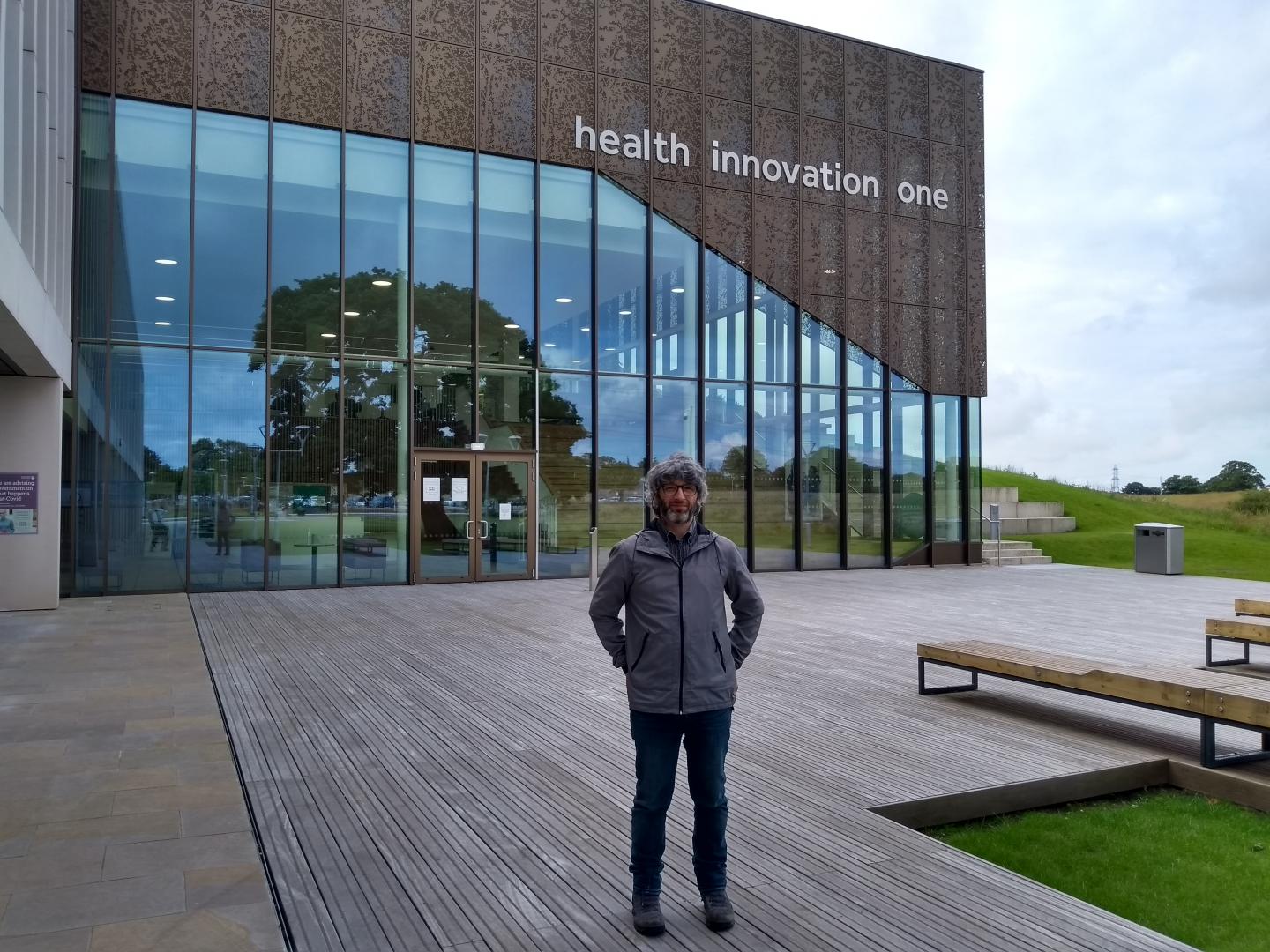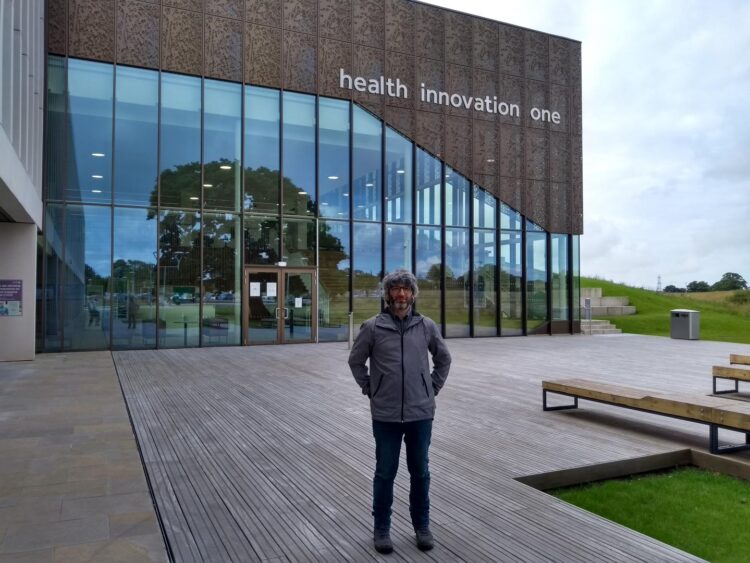
Credit: Health Innovation Campus
The Health Innovation Campus at Lancaster University has brought together a taskforce of experts for a major investigation into the prevalence of cancer in the region, to help improve early detection and save lives.
Lead academic Dr Luigi Sedda said that the majority of previous studies considered cancers as single disjoined entities but identifying the presence of more cancers in the same area can shed light on the wider causes of the disease.
The new study – funded by a £170k North West Cancer Research grant – will analyse and map different factors including environment, social and economic factors and how they impact on cancer diagnosis. Researchers will take advantage of a huge comparable patient data set in the region, which will give medics vital information to help diagnose and treat the disease.
Dr Sedda, from Lancaster University Medical School, said: “This is a very important study because it could give us a detailed picture of where there are correlations between potential causes and common types of cancer in our region, on a micro and macro level.
“In north Lancashire and south Cumbria we have quite a unique situation where most patients fall under one large primary care provider, so the data for the complete area is really accessible and uses all the same measures – so hopefully you are able to see patterns more clearly, around which new interventions can be designed.”
The project is backed by Lancashire’s Director of Public Health Dr Sakthi Karunanithi and Healthier Lancashire and South Cumbria’s Clinical Director of Population Health, Dr Andy Knox. Importantly, it is also supported by Lancashire Teaching Hospitals’ Consultant Oncologist, Professor Alison Birtle.
Once the research phase of the project is completed, the team will create a range of mapping tools which will allow stakeholders and members of the public to look at the findings in a visually accessible format.
It is hoped the project and its methodology will then be disseminated to other regions around the UK through the team’s various networks, increasing its impact on a national scale.
Dr Sherry Kothari, Director of the Health Innovation Campus, said: “This project is exactly what the Health Innovation Campus was designed for – to bring experts together to look at important health issues and find solutions with significant societal impact.
“North West Cancer Research was one of the first organisations to move into our new building because they understand the importance of these types of collaborations.
“My team was able to put them together with Luigi and his colleagues, as well as bringing in the NHS partners who can provide the data which allows this kind of detailed study to take place.
“We’re delighted the funding has been agreed and are looking forward to seeing how the project helps improve our understanding of some the correlations between causes of cancer in our region – and how we can use its findings to diagnose cancer early to save lives, while inspiring similar research to be undertaken across the country.”
As well as exploring existing health data, the project will also bring in researchers from Liverpool John Moores University to carry out interviews and gather first-person accounts of patient experiences.
Alastair Richards, CEO of North West Cancer Research, said: “We are delighted that this important project is getting underway to help us understand cancer and its causes in our region. In both Lancashire and Cumbria there are high-levels of cancer incidence and helping us to understand why, will enable the NHS, Public Health, North West Cancer Research and others to make a difference to the lives of people who live in the area.”
Dr Andy Knox, Clinical Director of Population Health at Healthier Lancashire and South Cumbria Integrated Care System, added: “This is such an important research project and it’s a privilege to be involved. Cancer affects all of our lives in one way or another. By working together with our communities and across our partnerships, we want to understand how we can make a real difference, particularly with those who are currently most at risk.”
Professor Alison Birtle, Consultant Oncologist at Lancashire Teaching Hospitals, said: “There are huge areas of unmet health needs in our local population and this study will give insight into how we can improve better detection, awareness and treatment of cancers.”
The Health Innovation Campus has been supported by Lancashire Enterprise Partnership Growth Deal funding, as well as the European Regional Development Fund.
###
Media Contact
Paul Fielding
[email protected]
Original Source
https:/





